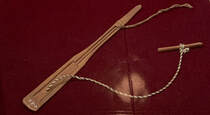Twenty-seventh Annual Japan Studies Association Conference
January 6-8, 2022 (virtual online)
Plenary Abstracts
David L. Howell
Robert K. and Dale J. Weary Professor of Japanese History
Harvard University
“Placing the Ainu in Japanese History”
Making room for the Ainu in our narratives of Japanese history requires a negotiation between broadening our understanding of what counts as Japanese history, on the one hand, and honoring the idea of an autonomous Ainu history, on the other hand. This negotiation between Indigenous and national histories—by no means unique to Japan—is complicated by the circumstances of the Ainu’s changing relationship with the Japanese state. From the seventeenth century onward, the Ainu have been tied to the Japanese state while being denied both full membership in the national community and recognition as an autonomous people. In this talk, I will discuss these historiographical issues while introducing some innovative responses from the growing field of Ainu Studies.
Plenary Roundtable: The Future of Japan Studies
Mindy Landeck, Associate Professor of East Asian Studies at Austin College,
Morgan Pitelka, Chair of the Department of Asian and Middle Eastern Studies and Professor of
History, UNC-Chapel Hill.
Christine R. Yano, Professor of Anthropology at the University of Hawai`i, 2020-2021 President of the
Association for Asian Studies
Organized and Moderated by
William Tsutsui, President, CEO, and Professor of History, Ottawa University.
Although a provocative panel at the 2019 Association for Asian Studies conference declared the “death of Japan studies”—with the geopolitical rise of China, the decline of the humanities and area studies, and the appearance of new theoretical paradigms—reports of the demise of the field may be greatly exaggerated. This roundtable discussion brings together Japan specialists from a range of institutions, disciplines, and career stages to discuss the challenges and opportunities facing the study of Japan in the United States and in a global context. How will (and how should) teaching and research in Japan studies change in a post-pandemic, post-area studies, post-Squid Game academic world?
Mindy Landeck, Associate Professor of East Asian Studies at Austin College,
Morgan Pitelka, Chair of the Department of Asian and Middle Eastern Studies and Professor of
History, UNC-Chapel Hill.
Christine R. Yano, Professor of Anthropology at the University of Hawai`i, 2020-2021 President of the
Association for Asian Studies
Organized and Moderated by
William Tsutsui, President, CEO, and Professor of History, Ottawa University.
Although a provocative panel at the 2019 Association for Asian Studies conference declared the “death of Japan studies”—with the geopolitical rise of China, the decline of the humanities and area studies, and the appearance of new theoretical paradigms—reports of the demise of the field may be greatly exaggerated. This roundtable discussion brings together Japan specialists from a range of institutions, disciplines, and career stages to discuss the challenges and opportunities facing the study of Japan in the United States and in a global context. How will (and how should) teaching and research in Japan studies change in a post-pandemic, post-area studies, post-Squid Game academic world?
Lonny Carlile
Associate Professor, Asian Studies Department
University of Hawai'i at Manoa
“The Colonization of the Saru River Valley, Hokkaido: Notes on a Virtual Landscape”
The Saru River Valley is home to the largest and most well-documented Ainu community in Hokkaido thanks to the tireless efforts of the late Ainu activist and Diet member Kayano Shigeru; the academic work of Japanese and Western anthropologists; a lawsuit that led to eventually led to official recognition of the Ainu as an indigenous people; and the recent designation of the area as a nationally recognized Cultural Landscape. In order to offer a better sense of how colonization unfolded in Hokkaido at the micro-level during the latter half of the 19th Century, the presentation will review key works that “map” the processes of colonization in the Saru River Valley and “project” these processes onto the valley’s physical landscape.
Image credit: Hakodate City Museum of Northern Peoples, a mouth harp and clothing pattern; photo: Maggie Ivanova


